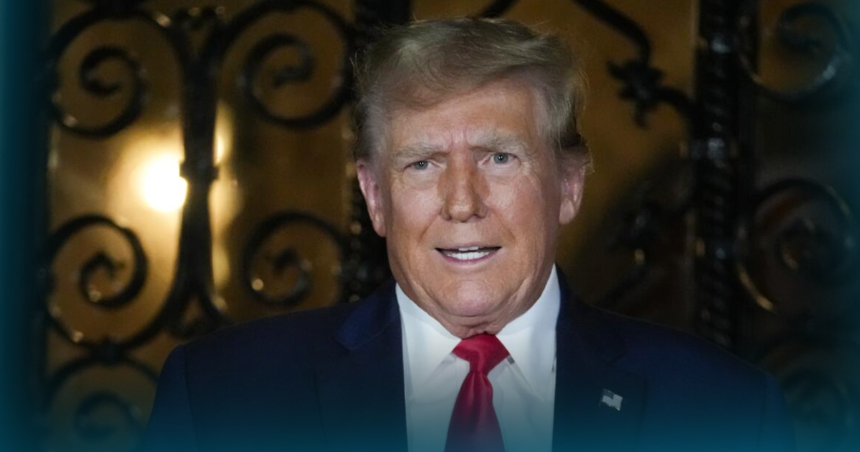Donald Trump received his harshest penalty to date on Friday, as Judge Arthur Engoron fined the former president $355 million for inflating the prices of his properties.
This adds to the $83 million verdict against Donald for defaming E. Jean Carroll, meaning that in the last four weeks, Trump has been penalized almost $438 million.
The decision on Friday demonstrated how the civil cases against the former president continue to have a substantial negative impact on him, jeopardizing his commercial empire even as he prepares for four criminal trials, the first of which is scheduled to start next month.
Engoron banned Trump from holding a board position in a New York corporation for three years after finding him guilty of fraud, conspiracy, and the release of fraudulent financial statements and corporate data. Though he refrained from completely liquidating the Trump Organization, Engoron published a scathing 93-page ruling portraying the former president as apathy-ridden and certain to commit fraud once more.
“Their total absence of regret and sorrow verges on psychotic,” wrote Engoron about Trump and his co-defendants.
The fines Engoron assessed in his decision against Trump are greater than any other sanction imposed on the former president and his business. These fines are referred to as “disgorgement,” or the return of ill-gotten gains.
Letitia James, the attorney general of New York, had requested that Engoron fine Trump and the other defendants $370 million, charging them with a sustained fraud conspiracy involving the falsification of Trump’s assets on his financial records.
It was rather near. Engoron discovered that the defendants’ deceit had spared them almost $168 million in interest, which he then fined Trump and his businesses.
The Old Post Office in Washington, DC was sold for $126 million, and the judge found that Trump and his businesses were responsible for $126 million in unjust profits since the contract was acquired through the use of fake SFC (statements of financial condition).
Additionally, the judge decided that Trump and his businesses were accountable for $60 million in earnings from the Bronx’s Ferry Point transaction.

Additionally, Engoron stated that Trump would have to pay interest on those payments, which would raise the total amount he must pay by as much as $100 million.
Furthermore, Donald was prohibited for a term of three years from holding any position as an officer or director of any corporation or other legal body based in New York.
Throughout the 11-week trial, Trump frequently disparaged Engoron and the case on social media, outside of court, and even in front of the judge when he was testifying.
The final word came from Engoron on Friday, who described Donald as a “pathological” con artist who would not give up unless compelled.
Engoron Verdict on Trump Case
This Court is forced to conclude that the defendants will continue to commit errors unless judicially constrained because of their failure to acknowledge them—indeed, the Independent Monitor claims that they even intend to continue doing so. This is written by Engoron.
Even while banks were compensated and frequently eager to continue business with Trump’s company, Engoron agreed that some crimes were more serious than the sins done by Donald, which his lawyers often claimed had no victim. However, he criticized Donald and his fellow offenders for their total lack of remorse.
This is not a fatal sin, but a venial one. Defendants did not carry out any arson or murder. They didn’t hold up a bank with a rifle. Bernard Madoff is not Donald Trump. However, the defendants are unable to acknowledge their mistakes. The judge wrote that instead, they take on a posture that the evidence contradicts: “See no evil, hear no evil, speak no evil.”
Engoron even used poetry to illustrate his points: “The first person to say that “to mistake is human, to forgive is divine” was the English poet Alexander Pope (1688–1744). It appears that the defendants have different opinions.
When Trump was testifying on the stand, Engoron criticized his performance because he largely sidestepped questions and used the occasion to deliver political remarks against the judge, the attorney general, and the case. After first attempting to control Donald—threatening to have him removed from the witness stand—Egoron finally gave up and allowed Donald to lash out in answer to the attorney general’s lawyer’s questioning.
Overall, according to Engoron, Donald Trump seldom answered the questions posed and regularly intervened with lengthy, pointless statements on topics that were well outside the purview of the trial. His credibility was seriously damaged when he declined to explicitly respond to the questions or, in some cases, to respond at all.
Also Read: Former FBI Agent Accused of Lying about the Biden Involvement in Ukraine Business


Leave a Reply